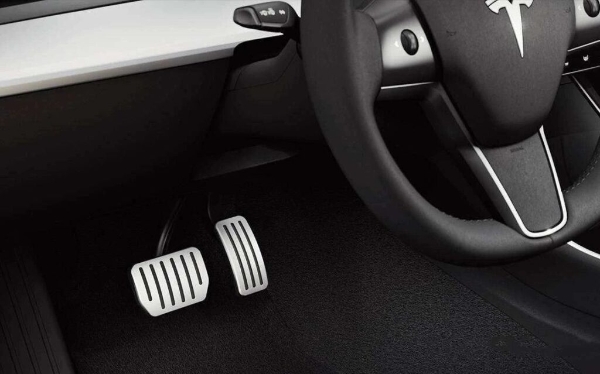Incidentally, this is old news and was first reported a few months back. I wanted to read the actual test/report to determine how they came to their conclusion. I couldn’t find it.
Also I note a complete lack of any of the people against this to think beyond their own personal interests. It’s all well and good saying “my muscle memory knows where my brake pedal is”. But that ignores that as EVs become far more mainstream a lot of new drivers will purely drive EVs in OPD mode and will rarely if ever learn that muscle memory.
Electric vehicles equipped with regenerative braking systems provide drivers a new driving mode, the one-pedal mode, which enables drivers to accelerate and decelerate with the throttle alone. However, there is a lack of systematic research on driving behavior in one-pedal mode, and whether it...

pubmed.ncbi.nlm.nih.gov
On May 30, 2025, the Ministry of Industry and Information Technology finalized the development of the mandatory national standard GB 21670–2025 – “Technical Requirements and Test Methods for Passenger Car Braking Systems.” The standard was approved and issued by the State Administration for...

www.bestao-consulting.com
GB 21670-2025 English Version - GB 21670-2025 Technical requirements and testing methods for passenger car braking systems (English Version): GB 21670-2025, GB/T 21670-2025, GBT 21670-2025, GB21670-2025, GB 21670, GB21670, GB/T21670-2025, GB/T 21670, GB/T21670, GBT21670-2025, GBT 21670, GBT21670
www.codeofchina.com
It makes perfect sense to minimise its use because humans programme in 'muscle memory' and then do things really badly in an emergency.
For example, I advise 'occasional motorcyclists' to never use the rear brake. This isn't because it doesn't help, but because in an emergency if they are used to using the rear brake then they will 'do that more', lock the wheel and crash. If you watch motorcycle crash videos, about 95% of them are caused by misuse of the rear brake where there is no other vehicle involved.
'Muscle memory' is very powerful in an accident and will overwhelm the sense to press on the brake. If the learned instinct is to pull away from the pedals to slow the car down, what a regular person will do is
'pull away even more' to slow down quicker, and that isn't going to help. In simple terms, to press the brake pedal will then involve a piece of conscious mental processing to over-come the muscle-memory.
This is much the same reason I have concerns on 'driver assist' functions; all they do is create an additional burden for the driver to consciously over-come if they decide it is doing the wrong thing. Sure, it makes regular driving 'easier' explicitly because the driver does not have to pay as much attention (and less fatigue on a long trip, so long as there are no emergencies), but it all turns to shit the moment there is an emergency to deal with and the brain has to kick in.
If you are wondering if 'muscle memory' is a real thing, it is actually programmed into the spinal column. You can spread your usual scorn and derision if you like, but non-conscious (non-processed) muscle control can be 'learned' by the grey matter in the spinal column. It's why people (e.g. gymnasts) can learn skills that require dexterity at a speed in excess of a nerve impulse from the brain to the foot, and gymnasts can be slightly taller than 'theoretical maximum', because a lot of those skills are trained into the grey matter of the spinal column as 'the first response'. The brain has to then deduce what the body has just done and then decide if it has done it correctly. Trying to do that in a back-flip on a balance beam (for example) would be impossible if it were not for such neurological programming closer down to the feet and the signal does not have to go so far. Look it up if you think any of that is an exaggeration.

 www.leravi.org
www.leravi.org

 www.leravi.org
www.leravi.org







